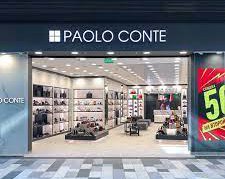Paolo Conte operated 81 stores and was among the largest retailers of medium-priced footwear in Russia. The bankruptcy laid bare the problems of footwear retailers with revenues of up to 4 billion rubles (50 million euros), which are currently suffering due to rising costs and declining customers. They are also at a disadvantage compared to manufacturers of counterfeit shoe brands which account for 30% of Russian imports, reaching 60% in the children's footwear segment.
Long one of Russia’s top sellers of mid-priced shoes, the company was unable to make necessary shifts to keep up with online demand and suffered from both falling foot traffic and rising costs after its founder’s death.
The size of Paolo Conte’s debt to primary creditor, Sberbank, has not been disclosed.
Andrey Rotar founded Paolo Conte in 2001 and died last year. In 2019, the retailer was Russia’s sixth largest mid-price shoe retailer with 81 stores and in 2020 Paolo Conte’s group revenue reached 1.8 billion roubles ($23 million).
Following Rotar’s death, however, creditors came calling, insisting the retailer pay off its debts. This caused a cash crunch that led to missed rent payments and store closures.
Mikhail Burmistrov, general director of the Russian think tank Infoline Analytics believes that Paolo Conte’s bankruptcy laid bare the problems of footwear retailers with revenues of up to 4 billion rubles (€50 million), which are currently suffering more than larger peers from rising costs, declining customer traffic and tougher competition with marketplaces.
According to Andrey Pavlov, the president of the Russian footwear retailer Zenden, the introduction of tigher controls on footwear cleaned up the Russian shoe market, but also put law-abiding businesses at a disadvantage against unlawful operators, such as manufacturers counterfeiting brands.
The rising challenge posed by counterfeited shoes was also highlighted by Vladimir Denisenko, general director of the Russian footwear producer Unichel. He estimated that during the first ten months of 2022, Russian customs confiscated almost 26 tonnes of counterfeit footwear, most of which was of Chinese origin.
Fake footwear accounts for 30 percent of the Russian imports, reaching 60 percent in the children’s footwear segment, he estimated. The reform of labelling rules failed to end illegal imports as counterfeit shoes are still being sold at various street markets, where there is a lack of state control, he added. Denisenko said that the average price of counterfeited footwear has remained unchanged during the past two decades at around $10 a pair.


